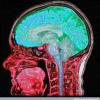@Sephrioth,
You wrote: "None of the above makes much sense."--I fail to understand why you apparently don't admit to the possibility of Munchausen syndrome or of hypochondriasis (my post #3). If it's the case that you categorically deny those possibilities then please supply a logical nexus that will ineluctably lead to an incontrovertible argument that conclusively precludes those conditions.
You wrote: "You can put a Somatoform/Munchausen diagnosis on almost any symptoms that do not have a clear objective cause."-- Please provide a reference that substantiates that assertion.
In case you are implying that I made a diagnosis--let me state herewith that I made no diagnosis. What occurred was your failure to correctly definitionally parse the word “possibility” in context. The context is one of limited information supplied by the OP, conjecture, and perhaps mis-remembering salient details. I suspect few people would attempt a diagnosis given that context.
I don't have access to the OP's anamnesis. And, I don't have access to the results of any physical examination or diagnostic tests that may have been performed in the interregnum between his initial post and the current time. I merely proffered a possibility, which, in error, you seemingly have misapprehended as a diagnosis.
You wrote: "Munchausen should ideally follow a pattern of repeated attention seeking with life threatening conditions."-- That statement, in toto, is incorrect. ICD-10 makes no mention of "a pattern of repeated attention seeking with life threatening conditions" as a criterion for diagnosing Munchausen's syndrome.
You wrote: “Why would someone post such a question on a forum? Attention seeking on a forum maybe? “-- I suggest that you direct these questions to the OP.
You wrote: “Hypochondriasis follows a pattern of being afraid of a wide range of life threatening conditions all the time, frequently combined with general anxiety. On what basis do you make this deduction here?”-- Let me be clear, again, I’m not making a diagnosis. However, does this: “I am very desperate and I am quite depressed now that i have done permanent damage and this is a bad time for me.” suggest anything to you?
You wrote: “There are no good tests to assess brain damage. Yes, there are cognitive tests and f-MRI, SPECT and PET scans, but even those are not always helpful. Cognitive tests should ideally have a baseline before the incident, otherwise, you are just comparing against average results. SPECT and PET scans can be helpful but need correct interpretation. Normal MRI scans are almost useless for diffuse brain damage.”
I suspect that a competent physician will be aware of the advantages as well as the limitations of various tests. I suggested that the OP see a doctor who will, hopefully, prescribe appropriate tests--“To measure is to know” (with appropriate caveats). I further suspect that a competent physician will be aware of “post hoc, ergo propter hoc”, “cum hoc, ergo propter hoc” as well as “The absence of proof is not proof of absence. “.
That fact that the OP is willing to prevaricate--“If i do go I am going to say it was carbon monoxide poisoning as I do not want him to think i was doing nitrous.”--rather than give a true accounting of the events, might lead the physician down the wrong path in his/her assessment of the situation. A wrong assessment might ramify, perhaps, to prescribing tests and/or medications inappropriately.






















































